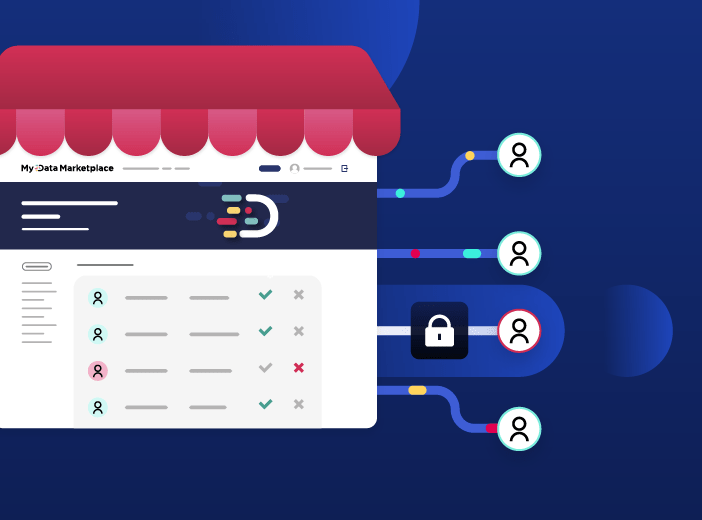Glossary
Internal Data Portal
An internal data portal shares data inside an organization or with a limited range of selected partners.
Data is the vital fuel for organizational success. However, often it is not available internally to all users within an organization. Instead, it is stuck in silos within departments and cannot be accessed and used by employees from other areas.
To unlock the power of data every employee needs quick, easy access to data from across the company. That’s where internal, self-service data portals come in. What are they for, and how are they used? What are the advantages?
What is an internal data portal?
With the growth of data creation, organizations have increasingly large volumes of data at their disposal. Many companies are therefore creating internal data portals, which allow information to be circulated to as many people inside the organization as possible.
An internal data portal is a tool designed for selected, known users only, such as employees, customers or partners.
Unlike open data, the information available through this portal is only shared internally, not publicly, and rights and access are managed. There is a clear audit trail of who has accessed data and how it has been used.
The information available on an internal data portal can come in many different forms such as datasets, graphics, Excel spreadsheets, videos, data stories, or maps. It can be a website or an app, and it relies on a system of APIs that allows everyone to share and reuse information quickly.
Why use an internal data portal?
Internal data portals are beneficial for any organization, regardless of industry or size. That’s because they can be used in multiple ways:
- KPI monitoring: Internally, a data portal can help teams and management track key performance indicators across the organization.
- Better decision making: Bringing together data from across the business and making it available enables better, more informed decision making,
- Greater collaboration: Data sharing, particularly between teams spread between different offices and those working in the field aids collaboration and joint problem-solving.
- Simplifying tasks: Internal portals provide users (employees, partners, customers, etc.) with datasets that make their daily working lives easier and more efficient..
- Improved customer knowledge: Self-service data means that every employee can access customer information, while preserving customer privacy and anonymity.
What are the advantages of internal data portals?
Whatever sector organizations operate in, creating a data-driven culture is essential to success. Making data easily available to all employees helps organizations to:
- Make better decisions: Decisions are based on facts, not on intuition or previous behavior.
- Improve efficiency: Supporting the free flow of information between departments optimizes communication and collaboration. It can help employees save valuable time on a variety of different tasks.
- Develop new business activities: Self-service data ensures that all employees have access to useful, relevant information. This allows them to identify solutions more easily, particularly by developing new services or business activities.
- Generate additional revenue streams: Companies can use the internal portal to share data with customers or selected partners. They can offer this as a fee-based service, or as part of a subscription.
- Building relationships of trust: Sharing data promotes transparency. Organizations can use it to create relationships of trust internally, breaking down barriers between departments by providing everyone with access to data.
The easiest way to take advantage of these benefits is through an internal, self-service data portal. By using the right technology platform, it makes it easier to share data and to create a data-driven culture across the organization..
How do you benefit from an internal data portal?
To develop a data-driven culture, companies should start by ensuring their internal data portal meets their specific requirements. Here are a few best practices to implement:
- Educate your employees: All employees should have access to information, regardless of the size of their company or its line of business. But they can also contribute by sharing their needs and specific use cases. To achieve this employees need to be trained on how the internal portal works (including areas such as data collection, access rights, retention period, obtaining consent). Equally data teams need to work with users to understand their specific needs and develop use cases to help meet their requirements.
- Update information: Data sharing within an organization fosters better decision-making. But only if data is comprehensive, high-quality, kept up to date and is easily understandable by users.
- Make the internal data portal accessible: The goal of having an internal data portal is to make it accessible to all. That means it has to be designed in a way that allows your employees and partners to use it easily, without any particular technical skills. It has to be self-service and searchable, so that users can find the data they need, when they need it.
Learn more




